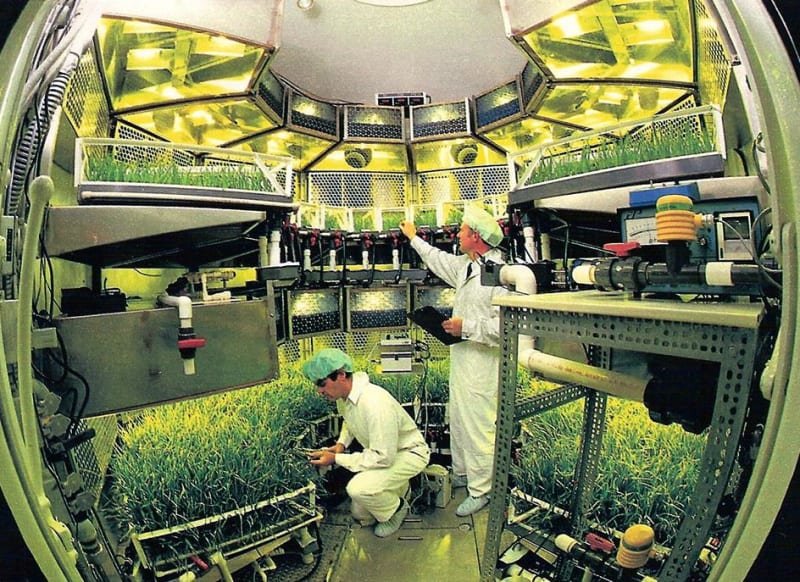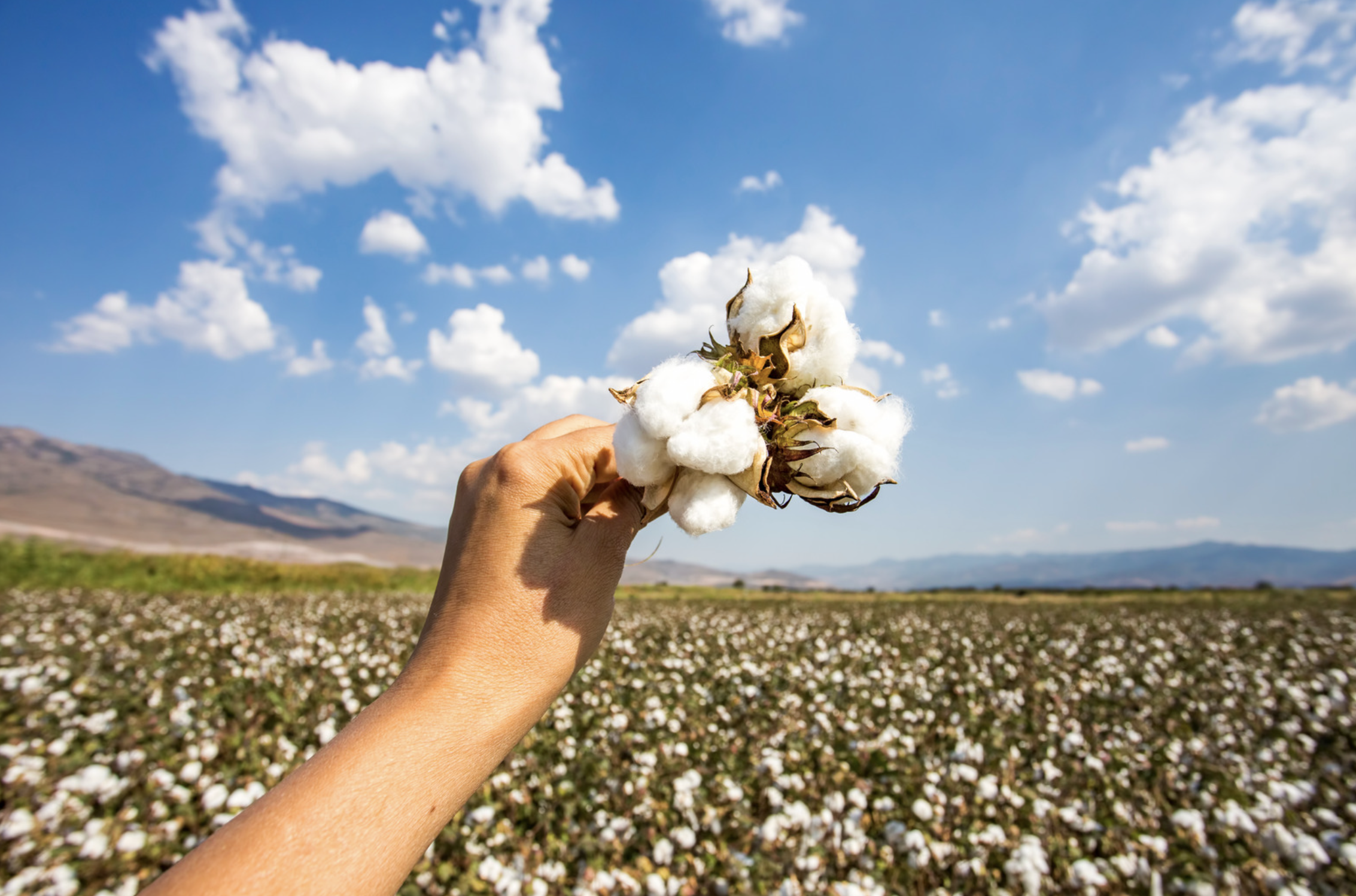Biostimulant for Longevity.
Moving Beyond Organic, Nourishing Controlled Environments
Plants are not just a source of nutrition—they also carry the imprint of their environment.
Whether wild or cultivated, plants adapt to the conditions they are exposed to, and these adaptations often come in the form of bioactive compounds that support plant health and survival. In nature, plants face environmental stressors such as extreme weather, pests, and diseases, which trigger their defense mechanisms. These compounds, like flavonoids, polyphenols, and other secondary metabolites, not only protect the plant but also offer various health benefits to humans when consumed.
However, plants grown in controlled environments, such as greenhouses, may not face these same stressors. As a result, they may produce fewer of these protective compounds, leading to lower concentrations of metabolites that can benefit human health. Enter Astrobiome®'s Beyond Organic Biostimulant (BOB™), by simulating selectively environmental stressors, BOB™ can boost the plant’s natural defense systems, encouraging them to produce more potent metabolites. This process mimics the resilience of wild plants and improves the nutritional quality of crops grown in controlled environments.
Boosting Plant Resilience and Metabolite Production
When plants grow in harsh conditions—whether in the wild or in controlled environments with biostimulants—they are compelled to produce an array of metabolites. These compounds are essential for the plant’s survival and play a key role in protecting it from stressors like pathogens, UV radiation, or nutrient deficiencies. However, plants grown under optimal conditions, like those in greenhouses, may not produce these compounds in sufficient quantities, as they are not subjected to the same pressures.
By applying Astrobiome® BOB™, we simulate some of these environmental stressors, encouraging the plants to produce higher concentrations of beneficial metabolites. These compounds can include antioxidants, anti-inflammatory agents, and other bioactive substances that support human health. The more resilient plants become, the more potent these compounds are, which directly enhances their health-promoting properties.
The Role of Quorum Sensing (QS) and Rhizosphere Interactions
One of the most important aspects of Astrobiome® BOB™ is its ability to enhance the interactions between the plant and the microbes in its rhizosphere—the region of soil near the roots. e.g., a bacterial cell-to-cell communication mechanism that modulates collective behavior of bacteria or quorum sensing (QS), bacteria in the soil communicate with each other and with the plant. This communication helps regulate nutrient uptake, plant growth, and stress responses. By boosting quorum sensing with the help of BOB™, we enhance these interactions, improving the plant’s overall resilience and efficiency in nutrient absorption, e.g., N-Acyl Homoserine Lactone (AHL) - it is QS signaling molecule that is known to influence plant fitness. The diagram illustrates a feedback loop between QS AHL signaling and the plant's responsive AHL signaling (AHL mimics); which then affects the microbial AHL signaling.
Reference Image by Puneet Singh Chauhan
“3 Bacterial quorum sensing signaling mediated interaction between host plants and bacteria.”
The diagram implies so-called induced resistance, including AHL evoked Induced Resistance (AHL-IR) (aka AHL-Priming) [1]
QS also allows the plant and microbes to exchange vital signals for growth and defense. In turn, this benefits both the plant and the microorganisms by increasing resistance to diseases and optimizing nutrient exchange.
Astrobiome® BOB™ works by enhancing these microbial communities, which leads to healthier plants with higher concentrations of bioactive metabolites.
Longevity and Health Benefits for Humans
Consuming plants grown with Astrobiome’s BOB™ can result in a richer nutritional profile, with increased concentrations of essential nutrients and antioxidants. These enhanced plants, especially when consumed as whole foods, offer numerous health benefits. For example, flavonoids and polyphenols—compounds abundant in plants exposed to stress—have been shown to reduce inflammation, protect against oxidative stress, and support cardiovascular health.
Beyond whole foods, these plants also have applications in cosmetics and skincare. For instance, almond trees treated with Astrobiome® BOB™ could contain higher concentrations of beneficial compounds in their almonds and can be used to make almond oil for cosmetics compared to regular almonds for snacks and almond milk, as it can be more effective for promoting skin health. The same principles apply to other crops used in the food and wellness industries, where enhanced metabolites can provide more potent health benefits and more valuable categories in the market.
Ever-Evolving Product: Space as the Next Frontier
Astrobiome® uses space as the next frontier lab for developing our biostimulant products.
Our space research aims to unlock unique insights that benefit both space food production and Earth agriculture. Plants grown in space face extreme conditions, such as microgravity, radiation, and limited resources, all of which can impair their ability to grow and produce nutrients. These conditions make space an ideal testing ground for enhancing plant resilience and metabolite production.
Exposing plants to space conditions helps stimulate the production of additional metabolites, enriching their nutritional value. Similar to how wild plants produce stronger compounds in response to environmental stressors, BOB™ stimulated space-grown plants may enhance metabolic profiles that have a high potential to offer a range of health benefits. These benefits may include boosting immune function and providing micronutrients that astronauts may lack in their steril environment.
Space-Inspired Insights for Earth Agriculture
Astrobiome® BOB™ aims to solve pressing agricultural challenges on Earth by leveraging space-inspired insights. The metabolites produced by plants treated with BOB™ not only could enhance plant health but can also improve human health when consumed, a process called xenohormesis. [2]
By using space as a testing ground, we can unlock new methods to improve plant productivity, resilience, and nutrient content, contributing to global food security challenges and promoting sustainable agricultural practices. As BOB™ evolves, we continue to refine our approach to optimize plant health and human wellness. Space research plays a crucial role in accelerating these innovations, offering deeper insights into how plants can thrive in environments where fluid flow is restricted. The ultimate goal is to create a sustainable, resilient, and nutritionally enhanced food system—benefiting both space missions and healthy Earth-based agriculture.
Moving Beyond Organic, Nourishing Controlled Environments
Through BOB™, we are addressing the limitations of controlled farming systems by reintroducing some of the environmental stressors plants naturally encounter in the wild.
Epigenetic Shifts in Space and Metabolite Production: Space-based research has demonstrated how epigenetic shifts in bacteria can enhance metabolic pathways. These adaptations, when applied to plants, can improve stress tolerance and nutrient absorption, as seen in research published by Microgravity Science and Technology and Frontiers in Plant Science. [3,4, 5].
This biostimulant helps plants develop stronger defense mechanisms, boosts their metabolic pathways, and increases their nutrient profiles. By simulating the challenges of extreme environments, we are not only improving plant health but also contributing to human health and longevity through the food we consume.
While our approach continues to evolve, the results of our work suggest significant benefits for both plant resilience and human health, via a novel approach
to transfer space-exposure benefits to earth-based-plants via communications between enhanced microbial communities and associated QS AHL feedback loops and plant rhizomes and associated root systems.
As we explore the space frontier, Astrobiome® BOB™ holds the potential to advance agricultural biotechnology, ensuring a sustainable and healthier future for humanity.







